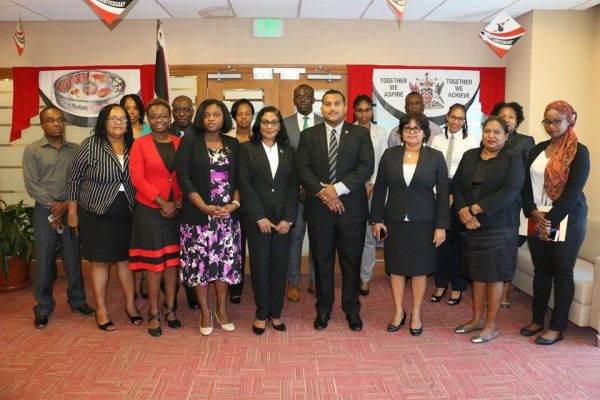Business communities across CARICOM are likely to be waiting with bated breath to determine whether last month’s establishment of a new CARICOM Manufacturers Association (CMA) will serve as an eventual precursor to the building of sturdier bridges among member countries of the regional movement in the areas of manufacturing and trade.
Last November’s announcement that six regional domestic manufacturers associations – the Barbados Manufacturers’ Association (BMA), Dominica Manufacturers’ Association (DMA), Guyana Manufacturing and Services Association (GMSA), Jamaica Manufacturers and Exporters Association (JMEA), St Lucia Manufacturers’ Association (SLMA), and Trinidad and Tobago Manufacturers’ Association (TTMA), had agreed to kickstart an initiative that could grow over time, raises the likelihood of an additional regional mechanism to address some of the troublesome intra-regional business and trade-related issues believed to be linked in large measure to policies designed to protect domestic industries.
Initial disclosures emanating from the CMA would appear to indicate that one of its primary objectives will be to provide a unified position on various business issues, moreso manufacturing ones, though an equally robust challenge could be the creation of policies designed to settle intra-regional trade-related controversies that have been known to arise with monotonous regularity. Significantly, the CMA will, reportedly, be seeking to treat with issues that transcend any one member country. Specifically, the core concerns of the CMA will be with trade policy, labour and human resource development, skills development and ease of movement of CARICOM nationals.
At the November 27 virtual signing ceremony it was disclosed that Barbados will serve as the inaugural Chair of the group and that the body will be attaching high priority to supporting the effective execution of the mandate of the Treaty of Chaguaramas through the sharing of information and the deployment of virtual technologies. “The core values shall revolve around self-sufficiency, the ability to fund and maintain ourselves, free from outside influence and control,” TTMA official George Namie is quoted as saying, a remark that suggests that while the group will remain mindful of the fact that it is working in the interest of the region, collectively as well as in the interest of CARICOM member states individually, it will not be subjected to the control of regional governments.
In recent times interludes of intra-regional controversy on issues of trade have arisen between CARICOM member countries including Guyana and Trinidad and Tobago.
In September last year, a Guyana Ministry of Foreign Affairs delegation traveled to Port of Spain to meet with officials there in an attempt to iron out trade differences between the two countries, specifically objections that had been raised in Port of Spain about some categories of exports from Guyana.
Stabroek Business understands that the CMA’s substantive agenda will include the promotion of region-wide environmental protection standards.
Little has been heard from the GMSA so far insofar as its strategy for engaging the region at the level of the CMA is concerned though the agenda of the local manufacturing body has raised its profile amongst the local Business Support Organizations (BSO’s) and won it the highest local profile among local business support groups.








